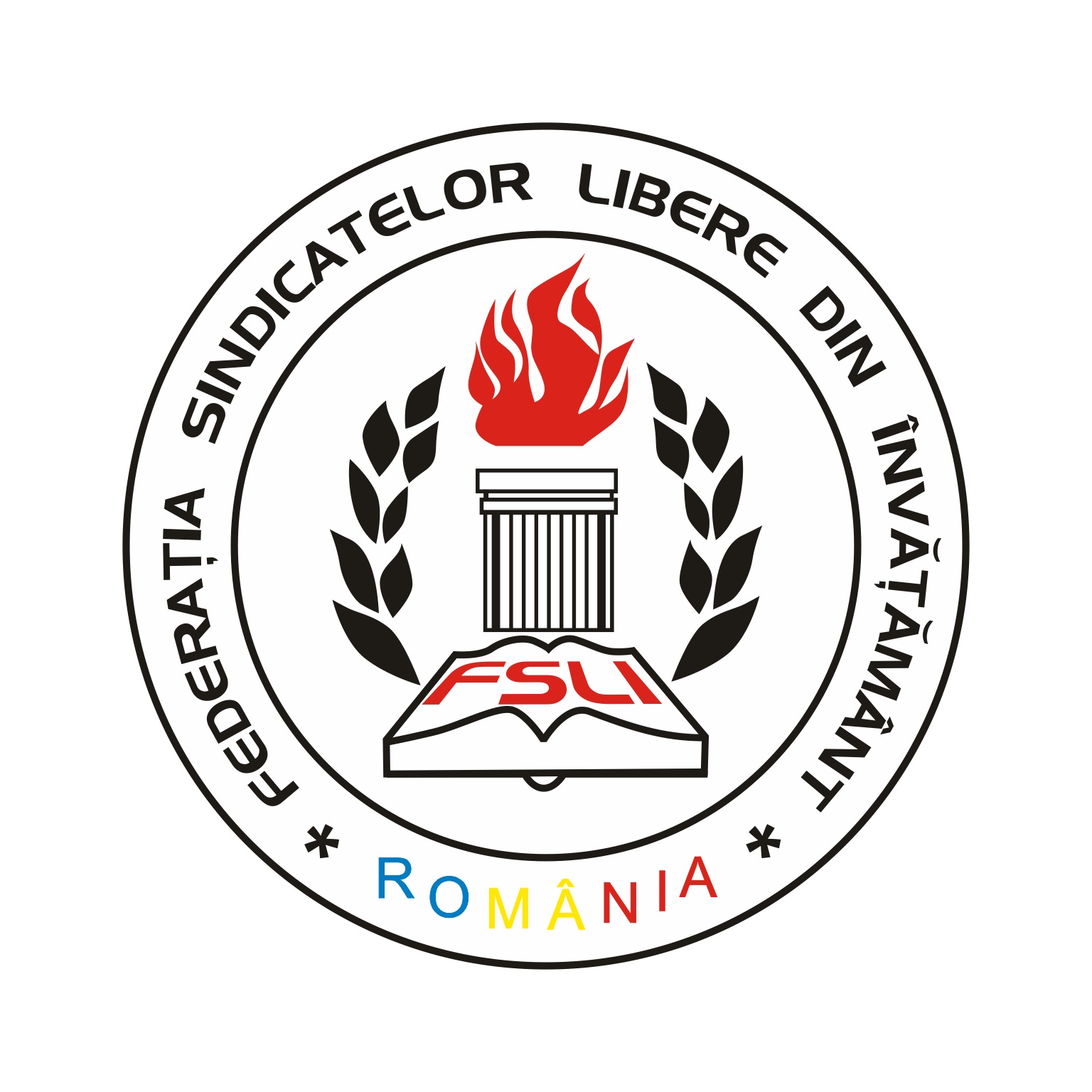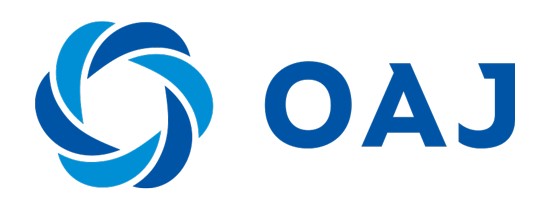Trade union actions
Europe’s learners and education personnel are becoming more diverse. The project “Education Trade Unions and Inclusive Schools: Embracing Diversity in Education” is building capacity so that education trade unions can prepare their members to address the many forms of diversity they encounter in the classroom and in society: socioeconomic, cultural, linguistic and more. ETUCE and member organisations aim to support education personnel in creating inclusive learning environments where every student and teacher can achieve their full potential.
-
Projects and Tools
-
YOUR TURN! Teachers for Trade Union Renewal (2018-2020)
-
Activities Your Turn!
-
ESSDE partners promoting migrant and refugee integration (2017-2019)
-
Activities
-
EU CONVINCE project – EU Common Values Inclusive Education (2018-2020)
-
Activities
-
OiRA project – Online Interactive Risk Assessment tool
-
Empowering education trade unions to address gender equality in the teaching profession through social dialogue (2018-2019)
-
Activities
-
ETUCE Online Database of Good Practices
-
Education Trade Unions and Inclusive Schools: Embracing Diversity in Education (2019-2021)
-
e-Speed (2020-2021)
-
Privatisation and Industrial Relations (2020-2021)
-
Activities IR-EDUREFORM Project
-
Education for Social Change: The role of Education Trade Unions in addressing sustainable environmental development (2021-2022)
-
Attractiveness of the Teaching Profession (2021-2023)
-
ELNE : European Leadership Network Europe
-
ETU4REF: Education Trade Unions support the inclusion of refugees and migrant (2023-2025)
-
APRES COVID
-
Your Turn 2: Teachers for Trade Union Renewal
-
InclEdu4AllNeeds
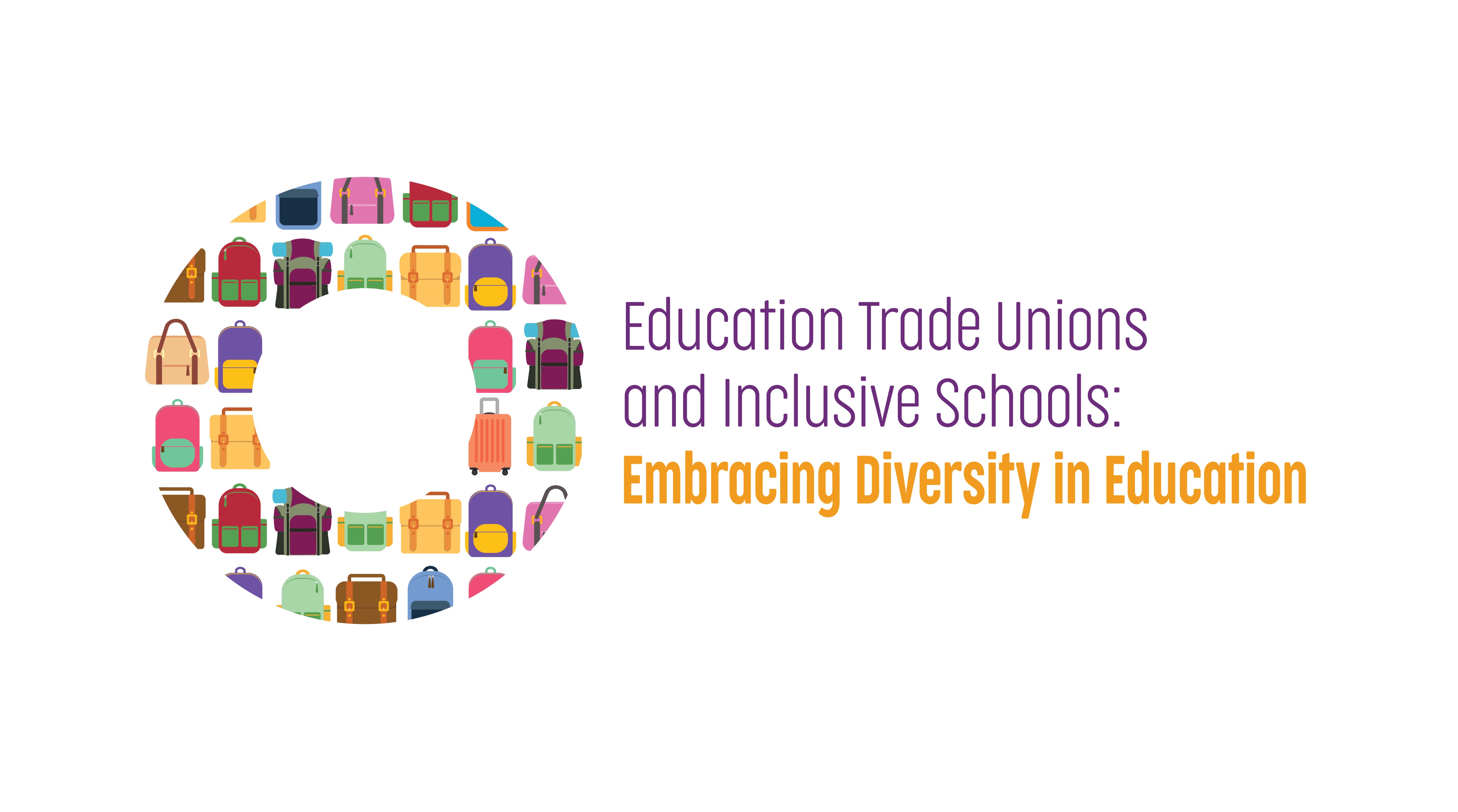
Advisory Group
- Manos Androulakis DOE Greece
- Alison Gilliland INTO Ireland
- Conceiçao Nunes SINDEP Portugal
- Alexandra Cornea FSLI Romania
- Lyhykäinen Päivi OAJ Finland
- Dubravko Tomasović IURHEEC Croatia
Funding
Related topics
Related news
Starting from December 2020, ETUCE member organisations will carry out a series of coordinated European and national action days to highlight key dates regarding equality and inclusion. These will raise awareness about the professional needs of teachers, academics and other education personnel when it comes to addressing diversity in the classroom and in society. The actions will target education authorities and wider society, demanding support for teachers, academics and other education personnel in creating inclusive learning environments.
Actions are foreseen for the following occasions:
- 3rd December 2020 – International Day of Persons with Disabilities
- 18th December 2020 – International Migrants Day
- 8th March 2021 – International Women’s Day
- 17th May 2021 - International Day Against Homophobia, Transphobia and Biphobia
- 5th October 2021 – World Teacher’s Day
All member organisations are kindly invited to propose their actions in advance by reaching out to Ekaterina Efimenko:
This email address is being protected from spambots. You need JavaScript enabled to view it.
Education Trade Union Actions - 17 May 2021, International Day Against Homophobia, Transphobia and Biphobia
NASUWT, UK
The NASUWT Teachers’ Union is fully committed to tackling all forms of homophobia, biphobia and transphobia. It is for this reason that marking IDAHOBIT is an important event in the Union’s calendar of work and activities. As a teachers’ trade union NASUWT strongly believes that an inclusive education environment must be one that respects LGBTI rights for pupils, students and all school staff.
NASUWT will continue to call for more work to be done to ensure that LGBTI issues are reflected more consistently and prominently in the wider school curriculum and that training for school staff and governors on LGBTI equality becomes the norm.
IDAHOBIT should be more than a day of action – this work must be consistent and prominent in all education and trade unions’ work programmes. It should also be considered through the intersectional lens of race, sex and disability. It is for this reason that the NASUWT’s work on tackling worldwide discrimination and injustice is inclusive of challenging homo/bi and transphobia.
Evidence from LGBTI members of NASUWT shows that the prevalence of homo/bi/transphobia had got worse during the Covid-19 pandemic, particularly through online abuse as more teachers were forced to work virtually. The theme for IDAHOBIT this year, ‘Together: Resisting, Supporting, Healing' gives us a helpful reminder of the importance of collective trade union action in tackling all forms of bullying and harassment.
Other NASUWT work for IDAHOBIT can be seen here
AOb, Netherlands
On the occasion of IDAHOBIT, the Network for Diversity and Inclusion of the AOb in the Netherlands has posted an interview with Peter van Maaren, who wrote a book about his experience as a gay teacher in the Netherlands. They also posted an informational video about AOb’s activities for IDAHOBIT.
Watch the interview in English here
Watch the informational video (in Dutch) here
EIS, UK (Scotland)
The EIS will mark the International Day Against Homophobia, Transphobia and Biphobia by raising awareness on social media and highlighting relevant resources for members to advance LGBT rights at work, and in education.
- Today marks the International Day Against Homophobia, Transphobia and Biphobia - a day to reaffirm our strong commitment to LGBT Rights and to continue challenging inequality in all its forms #IDAHTB
- 17th May 1990 was when the World Health Organisation finally declassified homosexuality as a mental disorder. We have come a long way since then, but hard-won ground can again be lost and we must continue our efforts to ensure everyone can live free from discrimination and hate.
- On this day, we stand in solidarity with all members of the LGBT community in Scotland and beyond – in particular communities who face hostility and discrimination from the state when defending their rights to love who they love, and be themselves.
- Research shows that homophobic bullying is endemic in Scotland’s schools. Some resources on challenging homophobia can be found through the EIS website #IDAHTB
- If you identify as LGBT, you can join the informal EIS LGBT Network to participate in meetings, events and opportunities for LGBT members. For more information visit this website.
- Get your ticket now for our EIS Pride Celebration! 17th June will see an evening of brilliant performances from LGBT artists to celebrate Pride, and the end of a challenging school year. Let’s celebrate together! #Pride
OAJ, Finland
In the framework of a national big scale campaign ‘Shaping futures - Teachers are building better future for everyone’ to raise awareness about the importance of teachers' work, OAJ is posting a few photos on social media of teachers who are committee to such values as equality and inclusion. In the posts, OAJ also highlights some quotes from the Finnish legislation and curricula in order to show how teachers are daily involved and committed to work for more equal world.
Check the link to the campaign website in English
COV, Belgium
With the view to raise the awareness of its members on the issue of homophobia in Europe and education trade unions’ role in addressing it, COV published an article in members’ magazine ‘Basis’ on the occasion of the International Day Against Homophobia, Transphobia and Biphobia. The article is an interview with Rossella Benedetti, Chair of the ETUCE Standing Committee for Equality, where she discusses the current state of homophobia in European countries and presents the recent work of ETUCE and its member organisations on ensuring the LGBTI inclusive education and society.
Education Trade Union Actions - 8 March 2021, International Women’s Day
FLC-CGIL, CISL-S, UIL-S, Italy
FLC CGIL, the Federation of Knowledge Workers of the CGIL, Italy, for International Women's Day has organised several national and local webinars, giving an additional venue for discussion about women in the education sectors, including schools and research. At the centre of the discussion the themes of prevention of gender-based violence, new dangers on the web, and stereotypes about women.
“The second alphabet of women, a battle to be fought also with words” is the slogan of the initiative organised on International Women's Day by the CGIL, CISL and UIL Confederations with the contribution of the National Council for Economics and Labour (CNEL). In search of a "Women's Alphabet" that, through some of the many words that represent it, could "signify and recognise the unquestionable role of women in the lives of everyone at work, in society and in the community". At the centre of this year's initiative: Front line, closed schools, distant affection, quality employment, smart working, safe restarting, cultural issue, wage differences, domestic violence, and the battles to be fought also with words.
Read more: Fighting against discriminations, and ensuring well-being in public working places; Gender-violence prevention through the Web
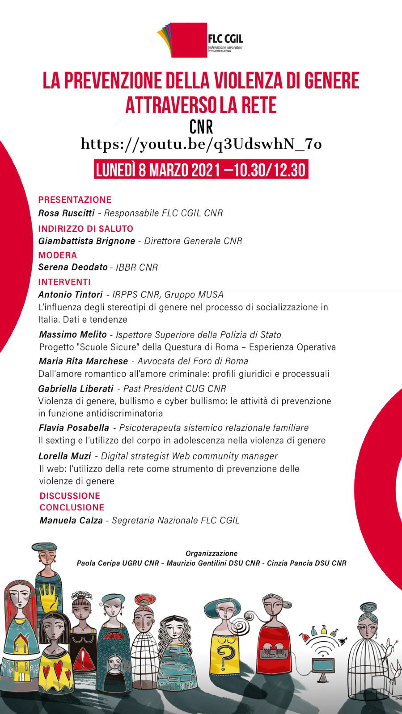
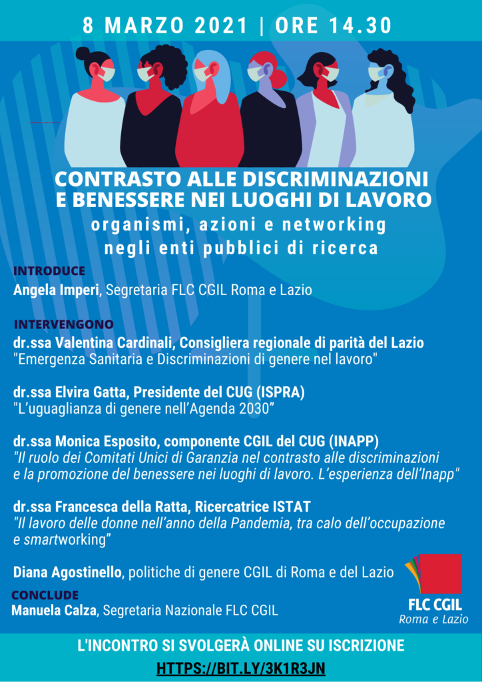
SULF, Sweden
The Swedish Association of University Teachers and Researchers, SULF, is planning to publish a first preview on the results from report about the connection between work environment and research funding, with a focus on gender differences. The heading of the web post is Kvinnor i akademin påverkas mer av otrygga villkor, Women in academia are more affected by precarious conditions than men.
EIS, UK (Scotland)
EIS has been running a survey ‘1000 Women’s Voices’ to record their female members’ experiences of health, homelife, paid and unpaid work during the COVID-19 pandemic. Throughout this time, women have been at the forefront of the Covid-19 pandemic in the caring and teaching professions, whilst also bearing the brunt of exacerbated gender inequality in unpaid house and caring work. In recognition of this, and to document women’s contributions to history as it happens, on the 8th of March, the EIS is releasing a film based on the outcomes of this survey that will seek to reflect the experiences of EIS women from a range of backgrounds. As well as being scripted to include testimonies from the survey, the film will also feature footage that women have taken themselves about their lives at work and at home during the pandemic sharing quotes from our research into women’s experience and resilience during this time. EIS findings show the immense juggling act of its members to keep education going in a crisis – and EIS will be focusing on some of the ways in which this burden is unequally distributed in terms of unpaid domestic and care work. The IWD film features one day in the life of seven women teachers and lecturers, and calls for improved consideration of women’s needs, including flexibility in working and wellbeing support. EIS will be using the hashtag #OneThousandEISWomenSpeak throughout the week.
INTO, Ireland
To celebrate the International Women’s Day 2021, the Irish National Teachers’ Organisation made audiogram messages from senior female INTO leaders (President Mary Magner & Deputy General Secretary Designate Deirdre O'Connor) in the morning & evening. It also publishes social media posts highlighting historical female INTO leaders (Margaret Skinnider, Catherine Mahon etc)
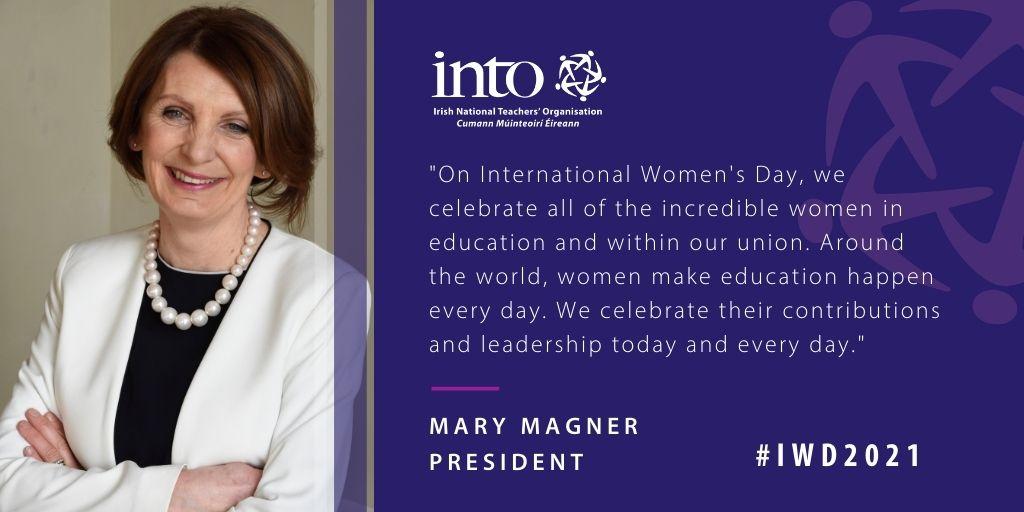
NEU, UK
For International Women’s Day, the NEU has organised a series of events throughout March to celebrate women and to raise awareness about gender inequality in education and society. Seminars are being held about women activists in the trade union movement, the impact of COVID-19 on women’s work, how education recovery can promote the rights of women and girls’ and how to ensure women can take up space in the union.
You can find out more about events being run and register here
DLF, Denmark
The Danish Union of Teachers participates in a webinar organised together with the Danish trade unions mail organization (FH) on the International Women’s Day (8 March 2021). The Danish Minister of Employment (Social and Democrats Party) will participate together with representatives of the trade union movement. The front person for the teacher students will speak at the webinar. The topic is the Fight against Sexism.
SPASH, Albania
This year, SPASH has planned to have a face-to-face meeting with women from Executive Committee and National Council members for International Women Day and discuss gender equality issues in times of COVID-19 pandemic. These issues will be addressed to the National Council in the next meeting. Due to the current pandemic restrictions, the number of meeting participants will not exceed 10 people. It will be the first meeting with members of Committee after a year.
TUESWU, Ukraine
Trade Union of Education and Science Workers of Ukraine is organizing an informational campaign for the International Women’s Day 2021. A series of articles on women leadership and rights and opportunities of women in Ukraine are published on TUESWU’s website and social media.
Please find the articles here, here and here
ESFTUG, Georgia
Since June 2020, the ESFTUG has launched the campaign ‘EDUCATORS FROM DIFFERENT PRESPECTIVES’ with three rubrics:
- #professionalswithdifferentperspective
- #tradeunionleaderswithdifferentperspectives
- #professionalsexperienceandmotivationovercomestheage
Stories of numerous successful female teachers and leaders have been to be featured in three rubrics. The purpose of the rubrics was to show the educational personnel from different perspectives, in addition to the purely professional questions, there are also personal/life streaming types of questions and feedbacks. By the rubrics, the public have been introduced many professionals and interesting people, who need more support to be recognized and respected. The rubrics show: Why are teachers’ hidden heroes? What roles do they play on a daily basis? What challenges do female teachers face on the path to professional growth? Are they recognized and do they have supported?
The rubrics are a kind of message from the union both in the educational space and to the public broadly pointing out that every teacher matters, disseminating every teacher’s individual vision and attitude, and highlighting the support and recognition they need. Each article is an expression of respect and support towards teaching professionals. A reminder that we are proud of our successful teachers. A sign of approach that the ESFTUG lobbies quality education access for all, inclusive schools for all.
Around 57 articles have been published on the ESFTUG web-site/ Facebook page so far. Until the end of school year, the process will be finalized with other actions. In the framework of the campaign.
These examples in English you can find among Teachers testimonies
SEB, Bulgaria
Bulgarian union of teachers is organizing the following actions to celebrate International Women’s Day:
- National Conference “Intergenerational Equality in the Conditions of COVID-19 Crisis”
- Conducting the online discussion related to the changes in the Bulgarian legislation in the conditions of COVID-19 crisis, dictated by the introduction of online work in all spheres of economic and social life.
Please find more information about these initiatives here
FNE, Portugal
On the International Women’s Day, FNE organises a variety of communication activities to commemorate this date, including an allusive poster, website news item, and social media posts. FNE has asked its member unions to choose at least one woman on behalf of each union to prepare a video on the topic of International Women’s Day. These videos are launched on the 8th of March on the FNE website and Facebook page (the cover of the FNE’s Facebook page will also be changed to attract the attention to this campaign). Furthermore, some member unions of FNE like SPZN for example are making materials (videos), on their own and putting them on their own Facebook page. The campaign will be also highlighted in the FNE newspaper for March.

ITU, Israel
Israel Teachers Union headed by Mrs. Yaffa Ben David, the General Secretary, is recently undergoing a revolution through its entire senior management arena. Most of the key positions are filled by women, some of them young, educated and with valued professional experience in their field. Ben-David promotes a clear agenda of social diversity and gender equality. She sees women educators as significant local leaders and considers the teaching profession as first-class leadership profession. Especially now, during the COVID-19 pandemic, teachers, and mostly women, stand at the forefront of battling the pandemic by dealing with complex educational and emotional issues faced by students and their families in an inspiring way. Most of teaching staffs have family and children and during the health crisis they continued to teach from home, while caring for their private children, spouses and parents. Thanks to the intensive involvement of teachers in students' lives, more than 70,000 families have been identified in distress and need, to which the Ministry of Education provides with food aid daily.
For the International Women’s Day 2021, Mrs. Yaffa Ben-David will participate in three major conferences that will be broadcasted in the most important and influential media in Israel. The conferences will be dedicated to International Women's Day. She will present her vision regarding women leadership, talk about her sources of inspiration, the home she was raised in her childhood, and her vision for an education system that promotes equal opportunities for all Israeli students – girls and boys. Ben-David believes that part of the union's role is to maintain an equal public education system for every child, and to promote gender equality in education. In the past year, in light of the pandemic crisis and the socio-economic differences between the municipalities in Israel, there have been a number of rude attempts by some of them to undermine the public status quo of the Israeli education system and the Israel Teachers Union has been vigilant and prevented privatization dynamics of the education system.
During the week of International Woman Day, The Benefits Club of the Israel Teachers Union will offer a wide range of activities, benefits and discounts for the female club members, who make up over 90 percent of the members. Lectures and online workshops of women's empowerment will be offered, including a meeting with Yarden Jerby the world gold medal champion in Judo who will give a unique inspirational lecture. Additional lectures will be offered on female personal resilience, mindfulness, NLP and a healthy balanced lifestyle. In addition, there will be cultural performances on a wide range of topics, of prominent and inspiring cultural female figures in Israel's society, which will be broadcasted online to all members.
NASUWT, UK
On the International Women’s Day 2021, the NASUWT will be launching a Toolkit and Checklist for negotiators and school representatives on Domestic Abuse as a Workplace issue on IWD. The toolkit will include guidance for school representatives on negotiating domestic abuse policies in the workplace. In line with the IWD2021 theme #ChoosetoChallenge, the title for the Domestic Abuse Advice document is ‘Challenging the Silence on Violence’. The guide also covers the role of trade unions in campaigning and supporting survivors of domestic abuse and ensuring they are protected in the workplace.
The NASUWT is committed to ensuring there are ’safe spaces’ within the Union for women members to come together to organise, share their experiences and develop the Union’s work on gender equality. On IWD, 8 March 2021, the NASUWT will be hosting a women only webinar event to celebrate women’s contribution to the workplace and wider society. The webinar will include work-related topics such as Managing the Menopause; Domestic Abuse as a workplace issue; and Tackling sexual harassment. Whilst this event on IWD will be for women only. The event will be supplemented by training for all workplace representatives and negotiators on Domestic Abuse policies.
The Union has produced video clips of women members discussing what IWD means for them and why they choose to challenge gender inequalities as Union activists. The video clips will be released and launched on the 8th March and can be seen on the ETUCE website, alongside a testimonial from the NASUWT President.
Information on the activities can be seen on the IWD webpage of the NASUWT web page here
UEN, Norway
UEN is affiliated to the Norwegian Confederation Unio, which organize unions with members with higher education working in public sector, which means that nurses and other health sector workers, priests and researchers, police and teachers, of cause, are represented. It’s a tradition that Unio invites to a breakfast seminar on the International Women’s Day, also this year, even if it will be a digital meeting. The meeting will focus on the consequences of the pandemic for women. UEN’s executive board member, Ms Marit Himle Pettersen, will present the findings of questionnaires we have distributed to UEN members. The focus of the questions were the working conditions during the pandemic. The nurses will bring information from their study about the same issues. The minister for equality issues, Mr Abid Raja, will address the audience. Additionally, as always for the International Women’s Day, UEN does a fact sheet on women’s issues. This year, UEN has written about the UN Commission on the Status of Women 65, the pandemic and what EI, ITUC etc. and Unio have highlighted for the UN CSW65.
The invitation and the program of the Unio breakfast seminar you can find here: Unios likestillingspolitiske frokostseminar
KTÖS, KTOEÖS, OELMEK, DAÜ-SEN, OLTEK, POED, Cyprus
Broadcasting within the body of KTÖS and continuing to work with the motto of the voice of the teachers, May TV is hosting a live program with the participation of woman representatives of ETUCE-affiliated education unions KTÖS (Cyprus Turkish Teachers' Trade Union), KTOEÖS (Cyprus Turkish Secondary Education Teachers' Union) and DAU-SEN (Eastern Mediterranean University Union of Academic Staff) on the 8th of March, International Women's Day. KTÖS President Ms. Emel Tel, KTOEÖS General Secretary Ms. Selma Eylem, and ETUCE Cyprus Country Representative and DAU-SEN Member Ms. Yeşim Dede will be attending the program and will be discussing the multi-layered inequalities faced by women both in their workplaces and daily lives in Cyprus and around the world.
In the program, guests will discuss on especially how the COVID-19 pandemic and lockdown processes deepen the existing gender-based inequalities and discrimination in the society; how the domestic burden of women increased during the lockdown as the school and professional life is moved to home and also, child and elderly care duties are assigned to the women in the households ; and how the patriarchal structure in our systems and societies during the epidemic period aggravates the economic, social and psychological violence and the labor exploitation that women are already subjected to. Moreover, increased rates of domestic violence and women's inability to access social support mechanisms during the covid-19 pandemic will be discussed. In addition, opinions will be put forward on how education unions can play efficient role to create awareness to strengthen the role of women in society in social, economic and legal dimensions, to empower women in education community, to make the women's movement and the struggle for women’s rights visible, and to improve the advocacy role of the unions to put pressure on the governments for to take concrete steps on the basis of equality, justice and women's human rights as a social state policy.
In addition, concerning the impact of the COVID-19 pandemic on gender inequalities, all the Cypriot teacher trade unions (KTÖS, KTOEÖS, OELMEK, DAÜ-SEN, OLTEK, POED) issued a joint statement.
Please see more information here
ESTUS, Slovenia
On International Women’s day, ESTUS published a notice to celebrate women teachers and raise awareness on the status of women in Slovenia by providing specific statistics and data. The notice emphasised that the COVID-19 pandemic has generally contributed to widening of the already existing gender gap in many fields and further revealed gender gaps in science. COVID-19 highlighted the key role of researchers, but also had negative consequences for women researchers, especially for those who have just started their scientific careers.
The notice presents some data in this field in Slovenia: at the University of Ljubljana (the biggest and the oldest university in Slovenia), women predominate at all three levels of study, and in the last 20 years the ratio between female and male students has been around 60 to 40. However, the numbers are different when we move from studies to the field of academic careers. For a hundred years now, men have dominated as teachers in higher education. The ratio of the last ten years is, on average, 60 to 40 percent in favour of men. At the University of Ljubljana, there are 1,198 women among 2,770 higher education teachers, and 592 women among 1,303 researchers.
Most women in Slovenia have a secondary education (45%), and 29% have a tertiary education, at least a higher education level (among a hundred men in Slovenia, there are an average of 20). More female students graduate each year. Thus, the proportion of women with higher or higher education is higher than that of men, except among the elderly population. The average monthly gross earnings of employed women in Slovenia (according to provisional data on structural earnings statistics for 2019) amounted to EUR 1,790 (EUR 111 less than the average earnings of men). Women are mostly at greater risk of poverty than men. In 2019, the at-risk-of-poverty rate among women was 13% (among men: 10.9%). In Slovenia, women aged 65 or over were in the most difficult situation in 2019 (23% of them lived below the at-risk-of-poverty threshold), especially those living alone (46.8% below the at-risk-of-poverty threshold). Greater differences between women and men show up as early as age 60 or older. What is also interesting is that in 2019 Slovenia was at the top of all EU-28 members in terms of the employment rate of women aged 15-64 and with two children. In 2019, 88% of women with two children were employed in Slovenia, followed by Sweden with 87%. The employment rate in Slovenia is also high among women with one or three or more children.
In addition, it shares interactive content on social media to engage trade union members in sharing views on the role of women teachers in the education sector and society and the challenges they face in their professional life.
DAU-SEN, Cyprus
DAU-SEN Cyprus is organising a panel on "Women Educators in Pandemic Period" on 8th March at 19:00 local time. All five panelists are academicians from different faculties of Eastern Mediterranean University who are academic union (DAU-SEN) members. Questions to panelists will include questions regarding their multiple roles as women educators and the challenges that they have experienced during Pandemic period. The panel will be conducted in Turkish. :
Panel will be live on Facebook
Education Trade Union Actions - 18 December 2020, International Migrants Day
EIS, UK
On the International Migrants Day, the EIS will send out a few tweets signposting our members to some resources that have been created by EIS that focus on migrant rights and inclusion:
- A teaching pack based on a poem called ‘The Tale o’ the Glasgow Girls’ which tells the story of the very successful campaign against the detention of child asylum seekers in Scotland . The pack is beautifully illustrated and includes a variety of learning activities that support the exploration of issues related to asylum, refugees and social justice. It can be accessed here: The Tale o' the Glasgow Girls (eis.org.uk)
- A series of booklets for teachers wishing to explore migrant issues with their students. Called ‘Myths of Immigration’ they debunk the myths and misinformation that surround the topic and provide a range of ideas and resources to support teaching and learning from Early Years to Further Education, in this area. They can be accessed here: Myths of Immigration Booklets (eis.org.uk)
- Highlighting an aspect of the EIS’s commitment to refugee and migrant inclusion so far this season: the distribution of more than 1100 Welcome Packs to refugee and migrant children across Scotland which outline what they can expect from life and education within Scotland and their associated rights. In addition to the attractively illustrated, age and stage appropriate information booklets for children and young people, the packs contain a guide for parents, versions of which are available in English, French, Polish and Arabic. The packs also contain items of stationery gifted by the EIS/ EIS Financial Services. The Welcome Packs can be accessed here: Refugee and Migrant Welcome Packs (eis.org.uk)
TUESWRT, Tajikistan
On the International Day of Migration, the Trade Union of Education and Science of the Republic of Tajikistan is holding the following events:
- Development of an action plan for the International Migration Day:
- Publication of campaign materials on international migration;
- Monitoring of family members of education and science workers during labor migration abroad:
- Creation of a corner "What should a migrant know?"
- Basic principles of migration regulation
- Ensuring human rights to freedom of choice of place of residence, freedom of labor, freedom of choice of profession and profession, freedom of emigration, freedom of movement;
- Inadmissibility of any restriction of rights on the basis of nationality, race, sex, language, religion, political status, education, social and legal status and property;
- Participation of the relevant state bodies in the organization of migration processes;
- Personal participation of migrants in resettlement to a new place of residence with the support of the state title of initiative and amateurism of each person, primarily those resettled from the zones of environmental and natural disasters;
- Explanatory work among members of trade unions is carried out within the framework of the Law of the Republic of Tajikistan "On migration".
- Also, on the social media of TUESWRT there will be a campaign dedicated to the International Day of Migration.
Please find more information on migration issues in education in Tajikistan here
ESTUS, Slovenia
ESTUS commemorates the International Migrants Day by thematic publications on its website and social media, including a short interview with a headteacher with a migrant background.The union is also planing to make a call to the Slovenian Ministry of Educationa to raise awareness of the major challenges faced by migrant children and their families at distance learning. ESTUS also foresees to organise a working group for members who work with migrant children where they could share their experiences and discsuss various issues.
Please find more information here: www.sviz.si
SNES-FSU and SNUipp, France
On the International Migrants Day, SNES-FSU and SNUipp are joining the FSU, French united trade union federation, in organising demonstrations and trade union actions all over France for the rights of migrants. A communiqué is also being published and signed by various trade unions and civil society organisation denouncing the context of nationalism, racism and xenophobia which present migration as a ‘problem’ and link it to terrorism. Among other demands, it calls for implementation of equal rights for all residents of France regardless of their citizenship status, and for the proper application of the International Convention on the Rights of the Child.
Please find the full text of the Communiqué in English here
GEW, Germany
On International Day of Migrants, GEW promotes messages on inclusive schools and fight against discrimination towards migrants in education delivered by GEW President Marlis Tepe and Juri Haas, a primary school teacher and leadership team member of GEW federal committee on migration, antidiscrimination and diversity. GEW also prepared an article linked to a debate on language diversity in schools to be published by the Scientific Council for Migration. The article underlines that the recognition of migration-related diversity and the reduction of discrimination are both a prerequisite and a goal of inclusive education. GEW calls upon politicians to recognise migration as normality and demands the governments:
- not to undermine the right of asylum
- to safeguard and protect the participation of refugees in education
- to invest in education and not in armaments to improve the sustainable development
- to provide sufficient resources and support systems for the intercultural opening of educational institutions
Please find more information here: https://www.gew.de/migration
UIL SCUOLA, Italy
On the International Migrants Day, UIL SCUOLA promotes the booklet ‘Refugees and Migrants. How to enrol at school in Italy’, published by UILSCUOLA and UIL-ITAL to provide an easy-to-use tool to address, at least in part, the difficulties of migrants and refugees who come in contact with educational institutions. The booklet translated into Arabic, Chinese, English and French, provides a series of recommendations from the moment the child (and not only) must be enrolled at school.
Please find more information here: https://uilscuola.it/vademecum-uil-scuola-strumento-di-conoscenza-e-diritti-nella-giornata-internazionale-dei-migranti/
Education Trade Union Actions - 3 December 2020, International Day of Persons with Disabilities
VBE, Germany
VBE published the results of the national FORSA survey on inclusion of students with special educational needs in German schools to which more than 2000 teachers took part. The FORSA survey analyses the state of the art of inclusion and the progress made from 2015 in German schools, also accounting the effect of the COVID-19 pandemic.
Find more information here
ZPŠaV NKOS, Slovakia
The Union of Education and Science Workers of the Independent Christian Trade Unions of Slovakia organised an online seminar ‘Preventing work-related musculoskeletal disorders (WMSDs) with ergonomics. Social partners cooperation for reduction of work-related musculoskeletal disorders.’ The event focused on the EU-OSHA 2020-22 campaign on the prevention of work-related musculoskeletal disorders, new safety and health issues which emerge as the world of work changes, the role of occupational therapy in preventing Work-Related Musculoskeletal Disorders, and experience of social partners in implementation of preventive measures.
Find more information here
FSLI, Romania
On December 3, FSLI launches a new training course online on Teaching Methods for students with SEN in the framework of MAGIC SENS Project developed by FSLI under Erasmus+ framework. A toolkit on this subject is also printed and will be available in English, Italian, Greek and Romanian. Furthermore, FSLI celebrated the Dyslexia Awareness Week 2020 by participating in a webinar "Dyslexia does not discriminate" organized by the Ilfov Teaching Staff House. Experts in MAGIC SENS Project presented the project and the online course and answered at numerous questions from teachers, parents and civil society representatives who participated in the webinar.
Link to the seminar (only in Romanian)
NEU, UK
For the International Day of Persons with Disabilities, NEU has developed a new disability reading resource for primary and early years education. The Full Story helps to promote disability inclusion and good outcomes for children and young people through reading about the world around us. This resource uses the social model of disability, recognising that it is society that needs to be adapted, not disabled people.
You can find the resource here
FLESTU, Lithuania
The Federation of Lithuanian Education and Science Trade Unions takes part in the ECO-IN project to improve inclusive education policies and practices from primary to lower secondary schools. With the aim of reducing social exclusion and marginalisation, the ECO-IN project involves all the main educational stakeholders - such as teachers, school heads, educational staff, parents and public authorities – and provides them with specific training and supporting actions to concretely act as teamwork combating segregation and radicalisation, thus enabling more qualitative and quantitative measures to implement, monitor and assess inclusiveness at school.
Find more information here
EIS, UK
On the 3rd of December, Education Institution of Scotland (EIS) is raising awareness by supporting a Scottish Trade Union Council (STUC) Disabled Workers’ Committee webinar for Disability History Month that focuses on Access ‘How far have we come, how far do we have to go?’. EIS is also highlighting an online event on the 19th of January, a networking opportunity for disabled EIS members or those who have access or communication difficulties. The meeting will be an opportunity to network, discuss support and share good practice. It aims to identify the current needs of EIS disabled members to inform the next steps in the EIS Equality Committee’s work in this regard.
GEW, Germany
On the 2nd of December, GEW is organising an online conference ‘Digitalisation between participation and division’ linked to the International Day of Persons with Disabilities. The focus of the meeting is on digitalisation, inclusion and participation and it will include the discussion with various experts from the research and trade unions.
Find more information here
KTOS and KTOEOS, Cyprus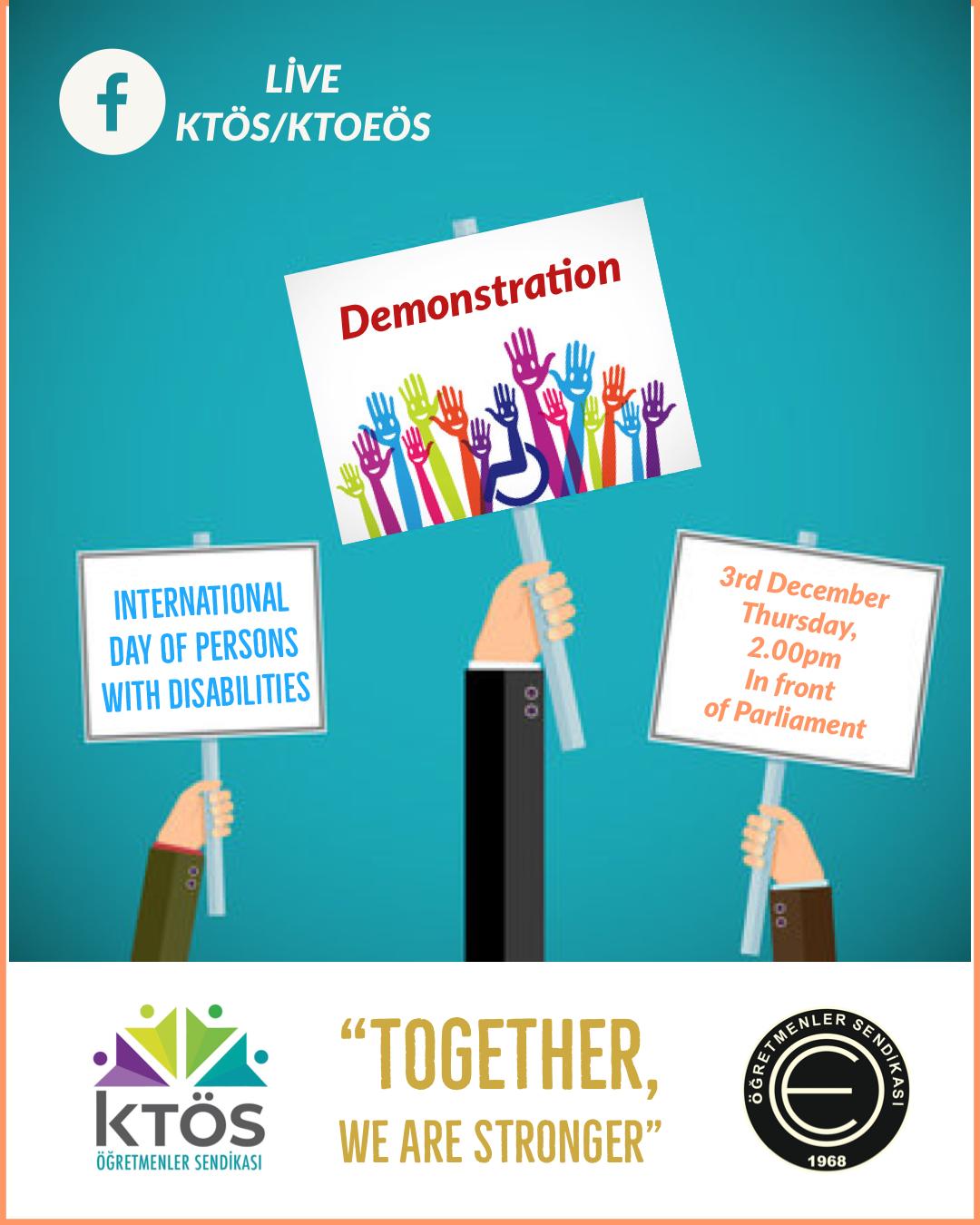
On the 3rd of December, KTOS and KTOEOS, sister education trade unions in Cyprus, are organizing a joint demonstration in front of the parliament to protest the insufficient policies of the government that cause inequality and discrimination among students. Due to the COVID-19 crisis, the education sector experienced the most challenging year and the main impact was targeted at socio-economically disadvantaged groups and also the students with disabilities. Especially the students with disabilities and their parents were affected negatively since no policies and solutions are put forward to help those who are not able to reach free and quality education during pandemic.
ITU, Israel
The General Secretary of Israel Teacher Union, Yaffa Ben David, has issued a message concerning the continuing struggle of ITU to assure the rights of children with disabilities in light of the new reform striving to integrate these children in regular education without accompanying this change with enough resources for a successful integration. A message by the General Secretary to all members was published in ITU's Website and social media.
Find here the translation of this message from Hebrew.



